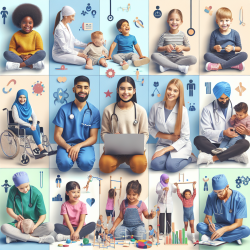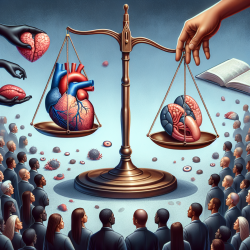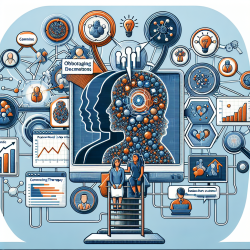In the world of speech-language pathology, understanding the lived experiences of our patients is crucial for providing empathetic and effective care. A fascinating study titled An action learning experience for speech-language pathology students: On the experience of having dysphagia for a day delves into this very concept. Conducted by Tim Bressmann, Rosemary Martino, Elizabeth Rochon, and Kim Bradley, the study offers profound insights that can enhance our practice as clinicians.
The purpose of the study was to immerse graduate students in the experiences of patients with dysphagia, allowing them to consume texture-modified foods and employ therapeutic swallowing strategies. Over four years, 95 students participated in this day-long learning experience. They fed each other porridge and thickened coffee for breakfast and had a meal of pureed food and thickened liquids for lunch, using the Supraglottic Swallow and the Mendelsohn Maneuver. Students then provided feedback on their experiences through self-administered surveys.
The outcomes were enlightening:
- Discomfort and Loss of Control: Students reported discomfort and a significant loss of control, mirroring the experiences of dysphagia patients.
- Textural Dislike: There was a consistent dislike for modified food textures, and students struggled with the swallowing techniques.
- Empathy Development: Despite the discomfort, students found the experience invaluable. They endorsed the workshop, recommending it for future cohorts, and believed it supplemented their academic learning in dysphagia therapy.
As practitioners, we can implement these outcomes in several ways:
- Experiential Learning: Incorporate similar experiential learning modules in training programs to develop empathy and a deeper understanding of patient experiences.
- Patient-Centered Care: Focus on the psychosocial aspects of dysphagia, understanding that patients may experience isolation, embarrassment, and depression.
- Feedback Integration: Regularly seek and integrate patient feedback to tailor interventions that consider their preferences and comfort levels.
Encouraging further research in this area can also be beneficial. Understanding the patient perspective not only enhances empathy but also improves clinical outcomes by aligning therapeutic interventions with patient needs and expectations.
To read the original research paper, please follow this link: An action learning experience for speech-language pathology students: On the experience of having dysphagia for a day.










